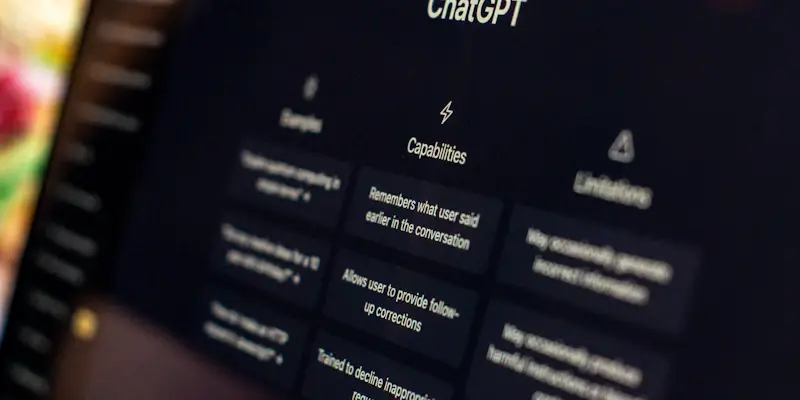OpenAI has significantly boosted the memory capabilities of ChatGPT, introducing a transformative feature that allows the AI to automatically recall past conversations. This enhancement marks a pivotal shift, turning ChatGPT from a straightforward question-and-answer system into an adaptive collaborator capable of remembering user-specific details such as profession, writing style, goals, and preferences. This development began rolling out on April 10, and it promises to make interactions more human-like, relevant, and useful. The improvement eliminates the previous necessity for users to manually save and label specific information. Now, the AI can automatically track and retrieve contextual data from all prior interactions without any manual input. OpenAI’s CEO, Sam Altman, has expressed immense enthusiasm about this breakthrough, emphasizing that it could make the AI far more personalized and valuable over time. This memory enhancement aims to enhance the user experience, making it more intuitive and custom-tailored to individual needs and preferences.
Automating Memory and Contextual Recall
The new memory feature of ChatGPT automates the tracking of user-specific details, making interactions more seamless and efficient. The previous approach required users to remember to save important facts and label them appropriately. With the new system, the AI can dynamically remember details such as the user’s work, past conversation topics, project progress, and personalized preferences. This ensures that each interaction builds on prior ones, creating a coherent and personalized conversation history.
This development is not just a technical upgrade but a significant step toward making human-AI interactions more natural and fluid. Instead of starting from scratch every time, ChatGPT can now offer continuity that is critical for more meaningful and effective communication. This persistent memory aligns with OpenAI’s vision of creating AI that is not just reactive but genuinely collaborative and adaptive.
Privacy is a central concern with any advancement in AI technology, and OpenAI has incorporated robust safeguards to address these issues. Users will have complete transparency regarding the specific memories the AI retains. They can delete individual memories or clear all stored data with ease, ensuring that user control over personal information remains paramount. Additionally, there is a Temporary Chat mode that works similarly to an incognito browser, preventing any information from being stored during the session.
Privacy Safeguards and Ethical Considerations
OpenAI has prioritized user privacy and ethical considerations in the development and implementation of the new memory feature. Recognizing the potential concerns about data permanence and personal information retention, the company has introduced multiple safeguards to protect user privacy. Users can view exactly what the AI remembers, giving them full transparency over their data. This approach allows users to feel secure, knowing they have control over which details the AI retains and can delete them when necessary.
Moreover, the introduction of a Temporary Chat mode offers an additional layer of privacy protection. This mode functions like an incognito browser, ensuring that no information from the interactions is stored. This feature is particularly beneficial for users who require absolute discretion during certain sessions or for those who prefer not to retain history for specific conversations. By incorporating these measures, OpenAI strikes a balance between enhancing user experience with memory capabilities and respecting user privacy and data security.
Currently, the enhanced memory feature is available to ChatGPT Plus and Pro subscribers, with plans to extend access to Team, Enterprise, and Education users down the line. However, due to regulatory constraints, this feature will not be immediately accessible to users in the European Economic Area, UK, Switzerland, Norway, Iceland, and Liechtenstein. The staggered rollout reflects OpenAI’s commitment to adhering to international privacy laws and regulations while providing advanced features to its users.
Future Prospects and Industry Impact
The introduction of advanced memory capabilities in ChatGPT represents a significant advancement in the highly competitive AI landscape. Rivals such as Google’s Gemini are also enhancing their memory features, highlighting the importance of personalization in AI development. Personalized AI has become a crucial area of competition, with companies striving to offer more tailored and contextually aware interactions. OpenAI’s focus on user agency, ethical design, and contextual depth may provide it with a competitive edge in this rapidly evolving field. The central question now is whether users will embrace this new feature, given potential concerns about privacy and data permanence. If users accept this memory capability, it could usher in a new era where AI not only assists but also genuinely understands and adapts to individual users. This evolution could transform AI into a truly collaborative partner, enhancing productivity and personalization across various applications.
OpenAI’s commitment to balancing innovation with user control and ethical considerations positions it as a leader in the development of personalized AI. The enhanced memory feature aims to deliver a more intuitive and human-like user experience, marking a significant step forward in the realm of AI interactions. As AI technology continues to advance, the focus on personalization and user-centric design will likely shape the future landscape of human-AI collaboration.
Looking Ahead
OpenAI has greatly enhanced the memory abilities of ChatGPT by adding a new feature that lets the AI automatically remember past conversations. This significant upgrade shifts ChatGPT from just a question-and-answer system to an adaptive partner that can now recall user-specific details like profession, writing style, goals, and preferences. This feature began rolling out on April 10, making interactions more human-like, relevant, and practical.
Previously, users had to manually save and label specific information, but now the AI can automatically track and retrieve contextual data from earlier interactions without manual input. OpenAI’s CEO, Sam Altman, is very excited about this development, emphasizing that it could make the AI more personalized and valuable over time. By improving memory capabilities, this enhancement is set to create a more intuitive and custom-tailored user experience, catering to individual needs and preferences. This marks a major advancement in making interactions with ChatGPT more seamless and effective for users.

